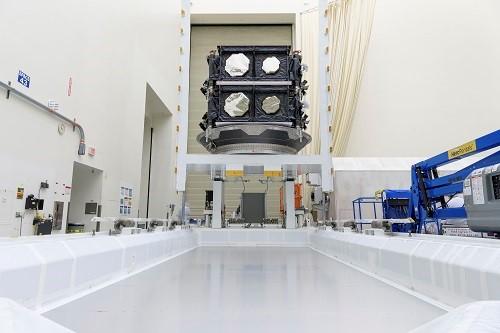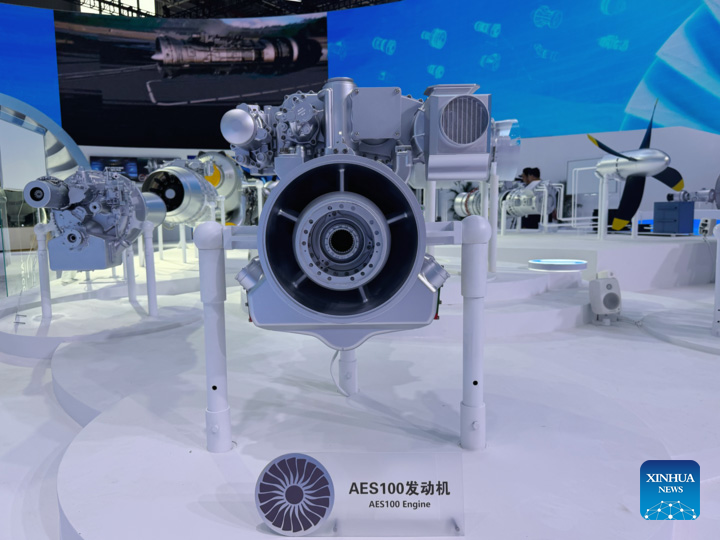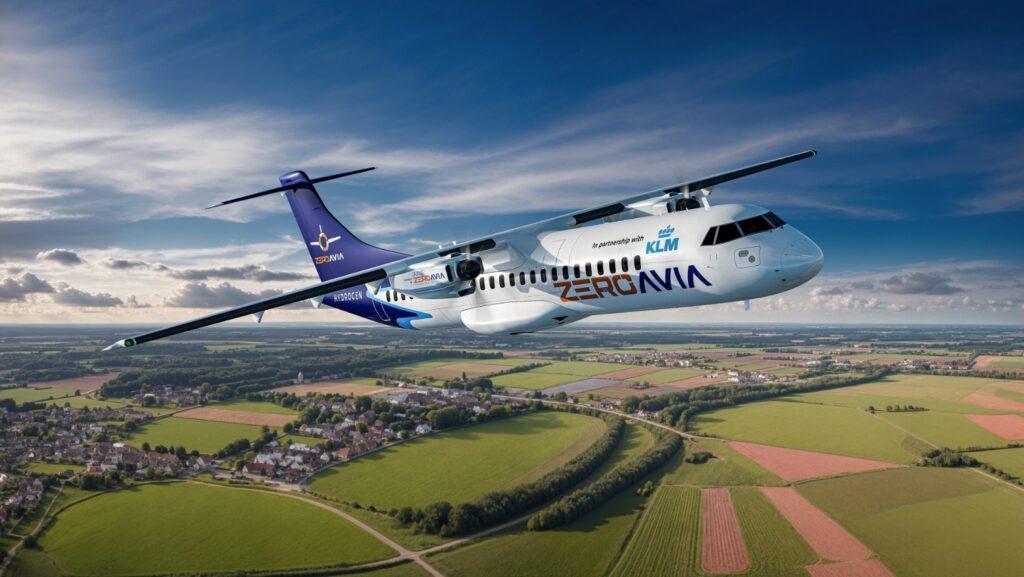A significant step toward zero-emission aviation was announced today by KLM Royal Dutch Airlines and ZeroAvia at the Farnborough International Airshow, held in July this year. The two aviation pioneers revealed their plan to work together on a demonstration flight using ZeroAvia’s cutting-edge ZA2000 hydrogen-electric engines, specifically designed for large regional turboprop aircraft. This partnership aims to underscore the
Hydrogen-Powered Aviation: A Cleaner Alternative
The ZA2000 hydrogen-electric engine, developed by ZeroAvia, works by utilizing hydrogen fuel cells to generate electricity. This electricity powers electric motors, which in turn drive the aircraft’s propellers. The only byproduct of this energy process is water vapor, drastically reducing the environmental footprint compared to traditional jet fuel. According to studies, this system can reduce climate impact by up to 90% compared to conventional kerosene-powered flights.
A Milestone in Aviation Decarbonization
One of the key targets set by KLM and ZeroAvia is to conduct the first point-to-point demonstration flight between two airport locations by 2026. To make this vision a reality, the collaboration is already working on essential regulatory permits and identifying the necessary infrastructure to support the use of liquid hydrogen fuel. Furthermore, the companies are exploring partnerships to develop hydrogen refueling stations and integrate this clean technology into aviation’s mainstream operations.
Accelerating Hydrogen Flight Across Europe
This collaboration is expected to fast-track the development of hydrogen-powered flights across Europe. By contributing critical data and operational experience, KLM and ZeroAvia aim to lay the groundwork for the adoption of hydrogen-electric flights throughout the European Union. As Maarten Koopmans, Managing Director of KLM Cityhopper, explained, “KLM aims to be a front-runner in the journey towards a more sustainable future in aviation. That’s why we actively support and encourage innovation to drive industry change.”
KLM’s Commitment to a Greener Future
For KLM, sustainability is a key pillar in their corporate strategy, and this partnership aligns with their broader vision to decarbonize aviation. KLM has already begun working closely with ZeroAvia and its sister company, Air France, to develop robust maintenance protocols for hydrogen fuel cell aircraft. The company views hydrogen-electric propulsion as a crucial technology in their pursuit of cleaner skies. In addition to hydrogen, KLM continues to explore other potential technologies, including hybrid and fully electric-powered aircraft.
James Peck, Chief Customer Officer at ZeroAvia, expressed excitement about the partnership, stating, “The world’s largest airlines are diving in to explore hydrogen-electric as a potential solution with increasing seriousness. We can’t wait to work with KLM, being an airline with such a rich history, as we look towards a clean future for the industry.”
ZeroAvia’s ZA2000 and Beyond
ZeroAvia is not new to the hydrogen-electric space. The company has already extensively tested its first ZA600 engine, including successful test flights aboard a Dornier 228 aircraft at its UK base. Now, ZeroAvia is advancing its technology with the development of the ZA2000 engine, which will support larger aircraft models like the ATR72 and Dash 8 400, capable of carrying up to 80 passengers. This next-generation engine includes key innovations such as cryogenic tanks for liquid hydrogen (LH2) and high-temperature PEM fuel cells, making it a strong contender for the future of sustainable regional air travel.
With this partnership, ZeroAvia and KLM are demonstrating that the future of aviation can be cleaner and more efficient, without compromising on performance or passenger experience.





